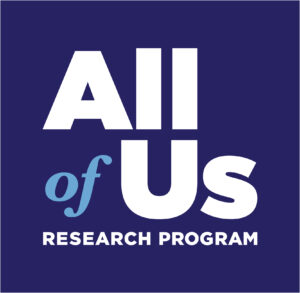Not many three-year-olds have attained such an impressive pedigree, but the All of Us Research Program from the National Institutes of Health (NIH) is marking its latest birthday with a list of noteworthy achievements.
For example, a regional team led by University of Miami Miller School of Medicine faculty has enjoyed remarkable success in recruiting members of minority communities into research projects, including Black and Latino participants.
Despite the challenges of the COVID-19 pandemic, more than 24,000 volunteers from the Southeast region have enrolled in the national landmark program, including a high percentage of minorities who are under-represented in medical research. Now, the program has reopened for the enrollment of new participants.
“Traditional medical research has been based on people with European ancestry,” said Henri R. Ford, MD, MHA, dean and chief academic officer of the Miller School. “It’s time we changed that. For personalized care to become a reality, all our communities need to be represented in medical research. I’m proud that the Miller School and UHealth – the University of Miami Health System are partners in this initiative.”
All of Us, a program expected to run for 10 years, is the most extensive and most inclusive research program undertaken by NIH. By asking 1 million or more volunteers across the nation to share different types of health and lifestyle information, the initiative aims to speed up health research breakthroughs to improve health outcomes and deliver precision and personalized medicine to patients.
With its expertise in genetics and genomics and its location in one of the most ethnically diverse counties in the nation, the Miller School is the lead partner in the study’s regional enrollment center in the Southeast, which also includes the University of Florida, Emory University, and Morehouse College of Medicine. There are nine other academic consortia across the nation, as well as the Veterans Administration and several community health centers enrolling participants that reflect the geographic, ethnic, racial, socioeconomic, age, and gender diversity of the United States.
Edited by Michael Causey



